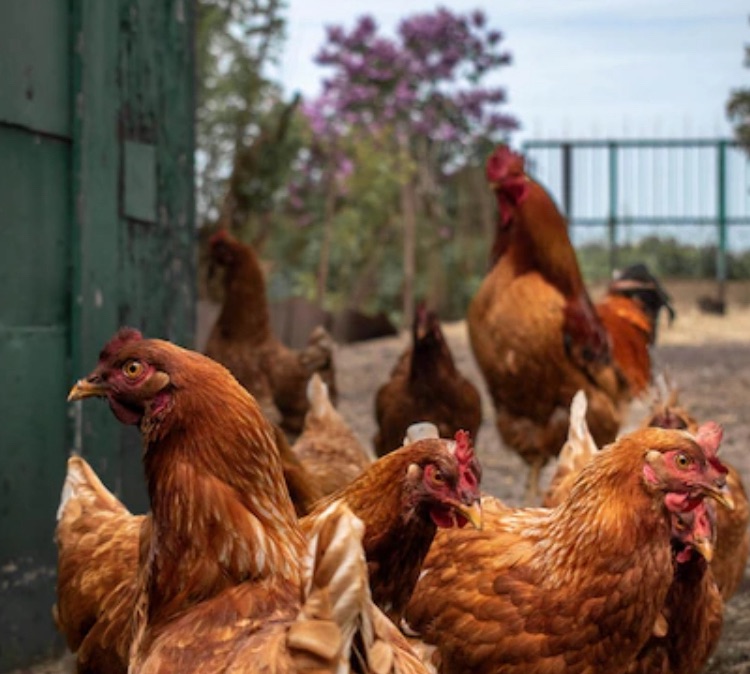The importance of self-reliance and preparedness in this modern world of uncertainty cannot be overstated. Among organizations that have made this a central tenet of their beliefs and practices, the self-reliance program of The Church of Jesus Christ of Latter-day Saints stands out as a model of excellence. The Church’s emphasis on emergency preparedness, food storage, and self-governance offers invaluable lessons that can inspire individuals, families, and even governments worldwide to adopt a more resilient and self-reliant approach to living.
The Church’s self-reliance program extends far beyond mere survival strategies. It embraces holistic personal development, financial stability, spiritual well-being, and proactive preparedness. This article delves deep into the program, its effectiveness, and the principles behind it that could benefit society at large, including governments like that of the United States.
Understanding the Self-Reliance Program of the Church of Jesus Christ of Latter-day Saints
At its core, the self-reliance program of The Church of Jesus Christ of Latter-day Saints is designed to help members achieve both temporal and spiritual independence. Rooted in the Church’s doctrine that spiritual and material preparedness are essential for a fulfilling life, this program encourages personal responsibility, community involvement, and long-term planning.
The program is broken down into various aspects, such as personal finance, education, career development, spiritual growth, and most famously, emergency preparedness and food storage. All of these elements work together to build a comprehensive system of self-sufficiency that strengthens individuals, families, and the larger Church community.
This program is open to all members of the community, not just church members. Click HERE to see more info.
1. Spiritual Self-Reliance: A Foundation for Success

One of the unique elements of the Church’s self-reliance program is its strong emphasis on spiritual preparedness. Members are encouraged to develop faith, seek divine guidance, and cultivate inner strength, which provides them with a solid foundation for dealing with life’s challenges. By fostering a sense of spiritual empowerment, individuals and families are better equipped to navigate economic hardships, natural disasters, or personal trials.
The Church teaches that faith in God is not just a spiritual necessity but also a practical principle that leads to self-reliance. When individuals believe in their divine potential and recognize their spiritual purpose, they are more motivated to take responsibility for their lives and circumstances. This spiritual self-reliance provides a sense of calm and clarity in times of uncertainty, making members more resilient and adaptable.
2. Financial Self-Reliance: Building Sustainable Prosperity
A significant aspect of the self-reliance program is its focus on financial independence. The Church encourages members to live within their means, avoid debt, save for the future, and contribute to charitable causes. The principle of financial self-reliance is deeply rooted in the Church’s teachings, with leaders regularly counseling members to build personal wealth through education, wise investments, and prudent spending.
The Personal Finances for Self-Reliance course is one of the most popular tools within the program. This course teaches basic financial literacy, including budgeting, managing debt, and long-term savings strategies. Members learn how to become financially independent, build emergency funds, and prepare for unexpected financial setbacks.
What makes this approach especially effective is its focus on sustainable practices. Rather than encouraging members to pursue quick financial fixes, the Church emphasizes long-term financial stability. By cultivating discipline and self-control, individuals are empowered to avoid the cycle of debt and develop a more secure financial future for themselves and their families.
3. Education and Employment: A Pathway to Self-Sufficiency
In addition to financial education, the Church’s self-reliance program places a strong emphasis on education and career development. Members are encouraged to pursue formal education, develop practical skills, and seek meaningful employment opportunities that can lead to long-term self-sufficiency.
The Education for Better Work course is another key component of the program. This course helps members identify their career goals, develop necessary skills, and navigate the job market. Participants receive training in job interview techniques, resume writing, and networking. The goal is to equip members with the tools they need to obtain employment and thrive in the workforce.
This focus on education and employment not only benefits individual members but also strengthens the larger community. When individuals are gainfully employed and financially secure, they are better able to contribute to the well-being of their families, wards (local congregations), and society as a whole. The Church’s commitment to helping members achieve self-reliance through education and employment sets a powerful example for other organizations and governments to follow.
4. Emergency Preparedness: A Culture of Readiness

Perhaps one of the most well-known aspects of the Church’s self-reliance program is its focus on emergency preparedness. The Church encourages its members to be prepared for all kinds of emergencies, whether they are natural disasters, economic crises, or personal challenges.
This culture of readiness is ingrained in the Church’s teachings. Members are encouraged to maintain a year’s supply of food, water, and other essentials to ensure that they can provide for themselves and their families in times of crisis. The principle behind this is not fear-driven but rather one of responsibility and foresight. By preparing for the future, members are better able to weather short-term emergencies without relying on external assistance.
The Church’s emergency preparedness resources include guides on food storage, water purification, first aid, and evacuation plans. Members are taught practical skills such as canning, gardening, and food preservation, all of which contribute to their ability to sustain themselves during emergencies.
This preparedness extends to larger-scale efforts as well. In times of disaster, the Church is often one of the first organizations to provide humanitarian aid, drawing on its well-established network of supplies and volunteers. This commitment to helping others while maintaining self-reliance showcases the balance between self-sufficiency and community service that is central to the Church’s mission.
5. Food Storage: An Essential Part of Preparedness
One of the hallmark practices within the self-reliance program is the emphasis on food storage. Members are encouraged to store a year’s supply of food and other necessities to ensure they can provide for their families in times of need. This practice, which has been promoted by Church leaders for decades, serves as a safeguard against economic downturns, natural disasters, or other unforeseen events that might disrupt access to essential supplies.
The Church provides extensive resources to help members create and maintain their food storage. These include food storage calculators, guides on what to store, and tips on how to properly rotate and use stored food. Members are encouraged to focus on long-lasting, nutritious items such as grains, legumes, and canned goods that can sustain them over extended periods.
What makes this practice especially effective is its scalability. Whether a family can store a year’s supply of food or just a few months’ worth, the principles of planning, preparation, and resourcefulness remain the same. This approach teaches members to think ahead and take proactive steps to ensure their long-term well-being.
6. The Role of Self-Governance and Self-Control in Success
A critical factor in the effectiveness of the Church’s self-reliance program is the emphasis on self-governance and self-control. Members are taught to take responsibility for their own lives and to govern their actions according to both spiritual and practical principles. This self-discipline allows them to manage their resources wisely, avoid unnecessary debt, and prioritize long-term goals over short-term desires.
The principle of self-governance is rooted in the Church’s belief in free agency, or the ability to make choices and be accountable for them. Members are encouraged to make thoughtful, prayerful decisions that align with their values and long-term objectives. This focus on personal accountability fosters a sense of empowerment and helps individuals take control of their circumstances, even in difficult situations.
Moreover, the practice of self-control plays a vital role in the success of the self-reliance program. Whether it’s adhering to a budget, maintaining food storage, or resisting the temptation to incur unnecessary debt, the ability to exercise discipline is key to achieving self-reliance. The Church’s teachings provide both the spiritual and practical tools necessary to cultivate these traits, which are essential for personal and family success.
7. Community and Cooperation: Strength in Numbers

While the self-reliance program emphasizes individual responsibility, it also recognizes the importance of community. Members are encouraged to work together to support one another in their efforts to become self-reliant. This sense of community is fostered through local congregations (wards and stakes), where members come together to share resources, provide mutual support, and collaborate on preparedness efforts.
The Church’s emphasis on cooperation is especially evident in its approach to emergency preparedness. In times of crisis, members often work together to ensure that everyone in their community has access to food, water, and other necessities. This spirit of collaboration strengthens the bonds between members and reinforces the principle that self-reliance is not a solitary endeavor but a shared responsibility.
Additionally, the Church’s global network of humanitarian aid and disaster relief efforts showcases the power of organized cooperation. When natural disasters strike or humanitarian crises arise, the Church is able to quickly mobilize resources and volunteers to provide assistance, all while maintaining its commitment to self-reliance.
8. The Broader Implications for Society: Lessons for Governments and Communities
The principles of self-reliance promoted by The Church of Jesus Christ of Latter-day Saints have far-reaching implications for society at large, particularly when considering the ongoing challenges faced by governments, communities, and families. These principles of self-reliance, preparedness, and proactive community-building are especially relevant in a world increasingly fraught with economic volatility, natural disasters, and political instability. The Church’s program offers a blueprint that can not only improve individual lives but also inspire broader societal resilience.
9. Emergency Preparedness on a National Scale: What Governments Can Learn
Governments, particularly in countries like the United States, can learn valuable lessons from the Church’s approach to emergency preparedness. The importance of being prepared for disasters—whether they are natural (earthquakes, floods, hurricanes), economic (recessions, financial crises), or societal (civil unrest, pandemics)—has never been more apparent. While governments often rely heavily on centralized disaster response mechanisms, these systems are not always fast or efficient enough to handle crises effectively.
The Church’s approach of encouraging individual and family-level preparedness could serve as a model for more decentralized emergency preparedness strategies at the national level. By promoting personal responsibility, encouraging households to stockpile food, water, and emergency supplies, and teaching practical survival skills, governments could reduce the strain on public resources during disasters.
In addition, the self-reliant community model practiced by the Church demonstrates how strong local networks can be instrumental in crisis response. When individuals and communities are prepared, they are less reliant on government aid and are better able to help others. Governments could adopt a similar approach by empowering local communities with resources, education, and support, allowing for more agile and effective responses to emergencies.
10. Food Security: The Church’s Model for Long-Term Stability
One of the most compelling aspects of the Church’s self-reliance program is its emphasis on food security through long-term food storage. Food security is a growing concern globally, with many regions facing food shortages due to climate change, political instability, and economic disruption. The Church’s model, which encourages households to store at least a year’s worth of food, could be highly beneficial if implemented on a broader scale.
By promoting personal and community-level food storage, the Church reduces the likelihood that members will face food insecurity during emergencies. This model could inform national food security strategies by encouraging citizens to build their own reserves while simultaneously increasing agricultural self-sufficiency at a community level. Urban gardening, food preservation, and cooperative farming could be incentivized by governments to ensure that more people are capable of producing and storing their own food, reducing reliance on international supply chains and large-scale industrial agriculture.
11. Economic Independence: Reducing Dependence on Government Aid
Another area where the Church’s self-reliance program shines is in promoting economic independence. Governments around the world spend billions annually on social welfare programs designed to assist those in financial need. While these programs are critical for many, the Church’s focus on teaching members to become financially self-reliant offers a potential model for reducing long-term dependence on government assistance.
Through its courses on personal finance, budgeting, and debt management, the Church helps individuals learn how to live within their means, save for the future, and avoid debt. Governments could adopt similar educational initiatives to empower citizens to take control of their financial well-being. For instance, incorporating financial literacy courses into public education systems or community programs could equip people with the skills they need to achieve economic self-sufficiency, reducing the demand for welfare services over time.
Additionally, the Church’s emphasis on avoiding debt aligns with the broader goal of financial prudence. In a society where consumer debt is rampant, teaching principles of frugality and long-term financial planning could help mitigate the economic crises that arise from over-reliance on credit. By promoting financial self-control, individuals can better weather economic downturns and avoid the pitfalls of insolvency.
12. Social Stability Through Strong Communities
Another key principle of the Church’s self-reliance program is the creation of strong, self-sufficient communities. The Church encourages members to work together in their congregations to support one another and build resilience. This sense of community fosters social stability and mitigates the risks of isolation or vulnerability during difficult times.
In contrast, modern society often emphasizes individualism, sometimes at the expense of community cohesion. The Church’s model, however, proves that collective well-being and cooperation are essential for creating strong, stable communities. Governments could take note of this by promoting local initiatives that strengthen community bonds, such as neighborhood emergency planning groups, cooperative housing models, and community-driven food systems.
By fostering a culture of mutual aid and shared responsibility, society can become more resilient in the face of challenges. This community-based approach to self-reliance not only enhances personal well-being but also creates networks of support that can be mobilized during times of crisis.
13. Self-Governance: The Power of Personal Accountability
The principle of self-governance championed by the Church’s self-reliance program holds significant potential for society at large. In a time when many citizens look to government institutions for solutions to personal and social challenges, the Church’s model emphasizes the importance of personal responsibility and accountability.
Self-governance is built on the concept of individual agency—the idea that individuals have the power and responsibility to govern their own lives, make wise decisions, and act in accordance with their beliefs and values. This principle aligns closely with democratic ideals of freedom and personal responsibility, and when adopted at a societal level, it can reduce the dependency on government intervention for personal challenges.
Imagine a society where more individuals take ownership of their financial, spiritual, and emotional well-being. The result would be a populace that is more resilient, self-sufficient, and capable of addressing challenges without needing to rely heavily on government programs or resources. This is not to say that government assistance should be eliminated, but that encouraging greater personal responsibility could lead to a more balanced, sustainable system.
14. The Role of Faith and Morality in Self-Reliance
While the Church’s self-reliance program is deeply practical, it is also infused with a strong sense of faith and morality. The principles of self-reliance are not merely about survival; they are about living in alignment with one’s values and beliefs. The Church teaches that by being spiritually prepared and living a life of moral integrity, individuals can achieve true self-reliance.
This spiritual component of self-reliance is often overlooked in secular discussions of preparedness and independence. However, the Church’s model demonstrates that faith and personal ethics play a crucial role in building a stable and resilient society. Individuals who are guided by a strong sense of purpose and morality are more likely to make responsible decisions, care for their families, and contribute positively to their communities.
Incorporating these spiritual and ethical principles into broader societal frameworks could have transformative effects. For example, fostering a culture of ethical decision-making, compassion, and integrity within public institutions and communities could lead to a more harmonious and cooperative society. Governments, in particular, could benefit from adopting principles of moral leadership and responsibility that reflect the values taught in the Church’s self-reliance program.
15. The Impact of Self-Reliance on Mental and Emotional Health
The benefits of the Church’s self-reliance program extend beyond financial or physical well-being. The program also has a profound impact on mental and emotional health. In a world where anxiety, depression, and stress are on the rise, the sense of empowerment and stability that comes from being self-reliant cannot be understated.
When individuals feel prepared for emergencies, have control over their finances, and are part of a supportive community, they are less likely to experience the psychological distress that comes from uncertainty and insecurity. The Church’s teachings on self-reliance promote mental resilience by helping individuals build confidence in their ability to overcome challenges.
Furthermore, the program’s focus on spiritual growth provides individuals with a sense of purpose and meaning, which can be a powerful antidote to feelings of despair or hopelessness. By cultivating both spiritual and temporal self-reliance, members are better equipped to maintain their emotional well-being, even in the face of adversity.
Governments and public health institutions could take inspiration from this holistic approach to self-reliance. Promoting mental health strategies that include financial literacy, community-building, and spiritual development could enhance overall societal well-being and reduce the public health burden of mental illness.
16. Self-Reliance as a Moral and Civic Responsibility
Finally, the Church’s self-reliance program highlights the idea that self-reliance is not just a personal goal but a moral and civic responsibility. Members of the Church are taught that by becoming self-reliant, they are better able to serve others and contribute to the common good. This sense of responsibility extends beyond the individual to the community and society as a whole.
In a world where social and economic disparities are growing, the principle of self-reliance as a moral duty offers a powerful framework for addressing these issues. By encouraging individuals to take responsibility for their own lives, the Church promotes a culture of selflessness and service. Self-reliant individuals are not only more capable of meeting their own needs but are also better equipped to help those in need.
Governments, too, could benefit from encouraging a culture of self-reliance that balances individual responsibility with collective support. By promoting policies that empower citizens to become self-reliant—through education, financial literacy, and community-building—society as a whole becomes stronger, more resilient, and more equitable.
Conclusion: A Model for a Resilient Future
The self-reliance program of The Church of Jesus Christ of Latter-day Saints offers a powerful and comprehensive approach to personal and community preparedness. Through
its emphasis on spiritual, financial, and temporal self-reliance, the Church provides a model that not only strengthens individuals and families but also enhances community resilience. The principles of self-governance, emergency preparedness, food storage, and community cooperation are not just about surviving difficult times; they are about thriving in a way that promotes long-term stability, security, and prosperity.
What makes the Church’s self-reliance program particularly effective is its holistic approach. It recognizes that true self-reliance requires a balance between spiritual growth, practical preparedness, and financial discipline. By focusing on these interconnected areas, the program empowers individuals to live more fulfilling, secure, and service-oriented lives.
In an increasingly complex and uncertain world, the lessons from the Church’s self-reliance initiatives are more relevant than ever. Governments, communities, and individuals could all benefit by adopting some of these time-tested principles:
17. Embracing a Culture of Preparedness and Service
At the heart of the Church’s self-reliance program is the recognition that preparedness and service go hand in hand. While self-reliance begins with personal responsibility, it does not end there. The Church teaches that as individuals become more self-reliant, they are better positioned to serve others—in their families, their congregations, and their broader communities.
This principle of service aligns with the Church’s doctrine of charity—the pure love of Christ. Members are encouraged to look beyond their own needs and to use their resources, time, and talents to help those around them. This creates a virtuous cycle: the more self-reliant a person becomes, the more they can contribute to the welfare of others, which in turn strengthens the entire community.
The Church’s welfare system is a prime example of this principle in action. Church members contribute to funds like fast offerings, which are used to assist those in need. At the same time, individuals who receive assistance are encouraged to improve their circumstances through education, employment, and personal development. This approach fosters dignity and self-worth, as individuals are not just recipients of aid but active participants in their own journey toward self-reliance.
18. National Implications: How Governments Can Foster Resilience
Governments, particularly those in countries like the United States, face significant challenges in balancing social welfare programs with the goal of fostering long-term independence among their citizens. The Church’s self-reliance program offers key insights that could inform public policy in meaningful ways.
One potential area of reform is the way governments approach social safety nets. While providing short-term assistance to those in need is essential, there could be a greater emphasis on educational programs and resources that teach financial literacy, emergency preparedness, and practical skills like food preservation and self-sustenance. Rather than simply offering aid, governments could empower citizens to become more self-sufficient, reducing long-term dependence on state resources.
Incorporating elements of personal accountability and community responsibility into social welfare programs could also help shift the focus from dependency to empowerment. Encouraging citizens to take active steps toward their own self-reliance—such as participating in financial planning workshops, job training programs, or community preparedness initiatives—could strengthen the overall resilience of society.
Additionally, local governments could take inspiration from the Church’s model of decentralized preparedness. By encouraging neighborhoods and communities to develop their own emergency response plans and stockpile resources, governments can foster a more grassroots approach to disaster management. This would not only relieve the burden on centralized emergency services but also create stronger, more cohesive communities that are capable of weathering crises independently.
19. The Ethical Dimension: Fostering Integrity and Responsibility
One of the most striking aspects of the Church’s self-reliance program is its ethical dimension. Self-reliance, as taught by the Church, is not just about material preparedness; it is about living a life of integrity, responsibility, and moral purpose. Members are encouraged to act with honesty, discipline, and compassion in all aspects of their lives, whether they are managing their finances, preparing for emergencies, or serving their communities.
This ethical framework is deeply intertwined with the concept of agency, which is central to the Church’s teachings. Members are taught that they are responsible for their own choices and that they will be held accountable for how they use their time, resources, and talents. This emphasis on personal accountability is a powerful motivator for individuals to take control of their lives and to seek self-reliance in both temporal and spiritual matters.
Governments and institutions could benefit from promoting a similar sense of ethical responsibility among their citizens. By encouraging values such as self-discipline, honesty, and service, public programs could foster a culture of personal integrity that reinforces the goals of self-reliance. When individuals are guided by strong ethical principles, they are more likely to make responsible decisions that contribute to their own well-being and the welfare of society.
20. The Role of Education in Long-Term Self-Reliance
The Church’s self-reliance program places a strong emphasis on education as a pathway to independence. Members are encouraged to seek both formal education and practical skills training, with the goal of becoming more self-sufficient in their careers and personal lives. The Perpetual Education Fund, established by the Church, is one example of how members are supported in their educational endeavors, especially in underserved areas of the world.
Education is not just about acquiring knowledge; it is about developing the skills and confidence needed to thrive in an ever-changing world. By investing in education, individuals can improve their employment prospects, build financial security, and contribute more meaningfully to society.
Governments could follow this model by increasing their investment in vocational training, continuing education, and financial literacy programs. By making these resources more accessible to all citizens, particularly those in vulnerable economic situations, governments can help foster greater economic mobility and reduce long-term poverty. Furthermore, promoting lifelong learning and adaptability can ensure that citizens remain resilient in the face of changing job markets and economic conditions.
21. Self-Reliance in a Global Context: Preparing for the Future
In today’s interconnected world, the principles of self-reliance and preparedness have global implications. As nations face challenges like climate change, economic instability, and geopolitical tensions, the need for strong, self-reliant citizens has never been greater. The Church’s self-reliance program offers a model that could inspire both individuals and governments to take a more proactive approach to the future.
At the individual level, the Church’s teachings encourage members to prepare for unforeseen events through food storage, financial discipline, and community cooperation. These same principles can be applied on a global scale. For example, nations could work to ensure food security by investing in local agriculture and encouraging citizens to grow their own food, reducing reliance on global supply chains that can be disrupted by crises.
In terms of financial preparedness, the Church’s emphasis on avoiding debt and living within one’s means is a lesson that could be applied to national economies. Governments can encourage responsible financial practices, both at the individual and institutional levels, to avoid the kind of economic instability that has plagued many countries in recent years.
Finally, the Church’s focus on community preparedness offers valuable insights into how nations can build stronger, more resilient societies. By fostering a sense of shared responsibility and cooperation, both within and between nations, the global community can better withstand the challenges of the future.
Conclusion: A Vision for a Self-Reliant Society
The self-reliance program of The Church of Jesus Christ of Latter-day Saints is more than just a practical guide for surviving difficult times; it is a comprehensive system for achieving temporal and spiritual well-being. Through its emphasis on spiritual growth, financial independence, education, and preparedness, the Church has created a model that not only strengthens individuals and families but also builds stronger communities and a more resilient society.
As governments and communities around the world grapple with the challenges of the 21st century, they could learn much from the Church’s approach to self-reliance. By promoting personal responsibility, community cooperation, and long-term planning, society as a whole can become more self-sufficient, secure, and capable of facing the future with confidence.
In an era marked by uncertainty, the principles of self-reliance, preparedness, and ethical responsibility championed by the Church offer a vision for a more empowered and resilient world—one where individuals and communities are prepared not only to survive but to thrive.








